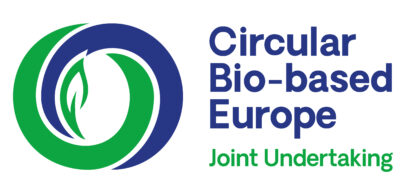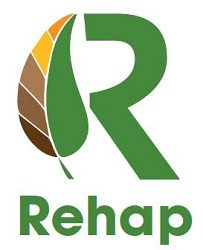Boosting upstream and downstream processes to maximize yield of PHB production and 2,3-butanediol
Known as biodegradable or renewable materials, bioplastics are one of the most in-demand biobased products. However, there is a need to improve the material’s properties and broaden its application areas to meet the market demands.
PROMOFER aims to address this issue by producing high-value bioplastics applications from two kinds of feedstock – lignocellulosic biomass and food industry waste – and improving fermentation processes, as well as downstream purification. The circular biobased products resulting from these processes can be used in geotextile net, coated paper packaging, and technical textile applications in the fashion industry.
Activities
To achieve its objective of improving the fermentation process and downstream purification, PROMOFER aims to:
- Apply an efficient pre-treatment to lignocellulosic biomass.
- Develop microbial-based processes to transform different types of post-industrial wastes into polymers.
- Improve fermentation capabilities and performance of microbial production of polymers by using different methodologies, among which genetic engineering.
- Improve polymers extraction and purification by applying environmentally friendly alternatives.
- Apply an efficient process design for the fermentation to maximise the accumulation of produced polymers.
- Obtain biobased polymeric compounds and demonstrate their performance through the production of prototypes for packaging and agricultural applications.
- Improve the environmental performance across all fermentation process stages.
- Assess public awareness and acceptance of biobased products, as well as support acceptance of scalable biobased solutions.
ACTIVITIES of the Bio Base Europe Pilot Plant
- Development of 2,3-BDO recovery and purification
- Scale-up of 2.3-BDO fermentation and downstream process to TRL7
PARTNERS
- AIMPLAS, ES (Coordinator)
- Process Design Center, NL
- NOVAMONT, IT
- School of Biomolecular and Biomedical Science, University College Dublin, National University of Ireland, IE
- VEGEA, IT
- Paques Biomaterials, NL
- Bio Base Europe Pilot Plant, BE
- HELLABIOM, Hellenic Biomass Association, GR
- Right-Click, FR
- Celignis, IE
- Geacam, Gestion Ambienal de Castilla-La Mancha, ES
- ETAM, Anonymh Etaireia Symboyleytikon Kai Melethtikon Ypiresion, GR
- IRIAF, Instituto Regional de Investigacion y Desarrollo Agroalimentario y Forestal de Castilla-La Mancha, ES
SUPPORTED by
The project is supported by the Circular Bio-based Europe Joint Undertaking and its members.



Disclaimer Art 17.3. Funded by the European Union. Views and opinions expressed are however those of the author(s) only and do not necessarily reflect those of the European Union or CBE JU. Neither the European Union, nor CBE JU can be held responsible for them.



 webdesign
webdesign